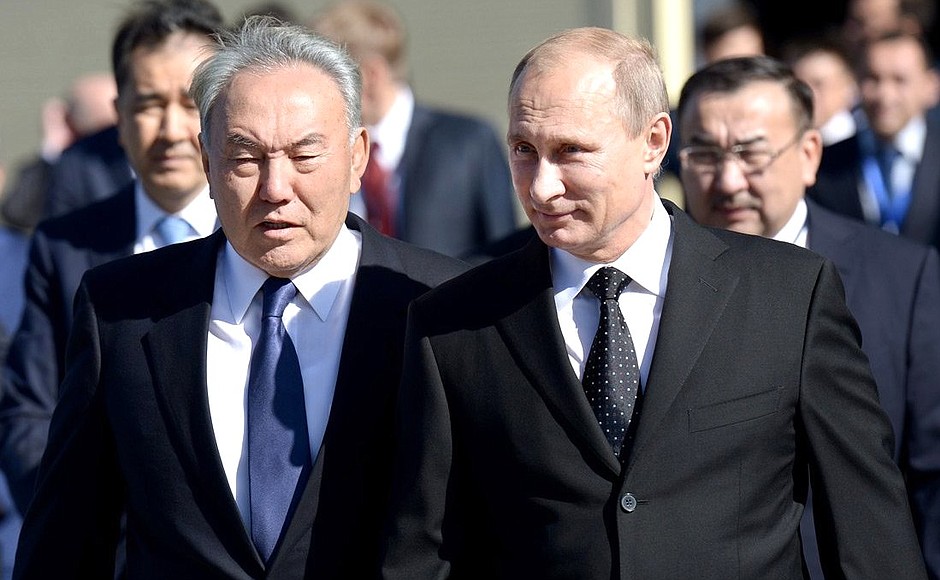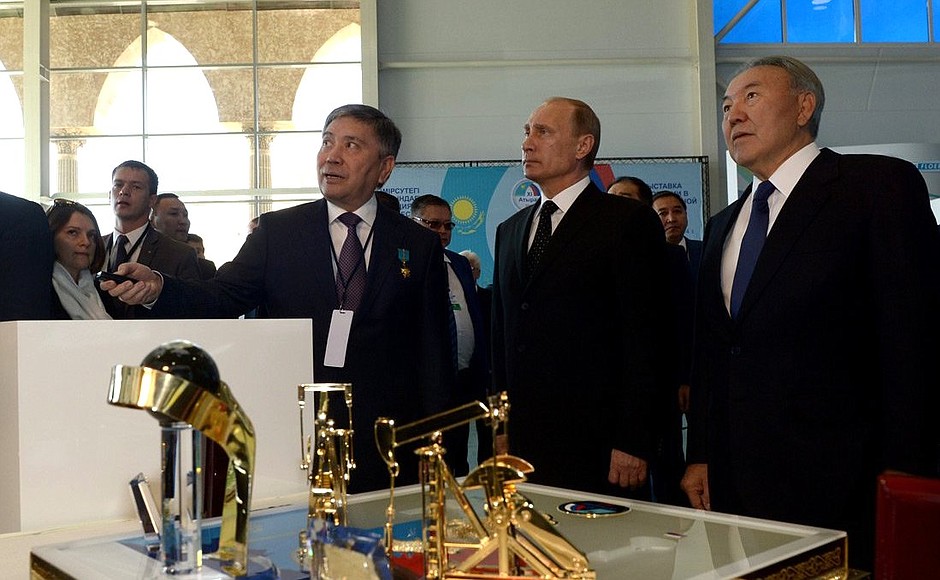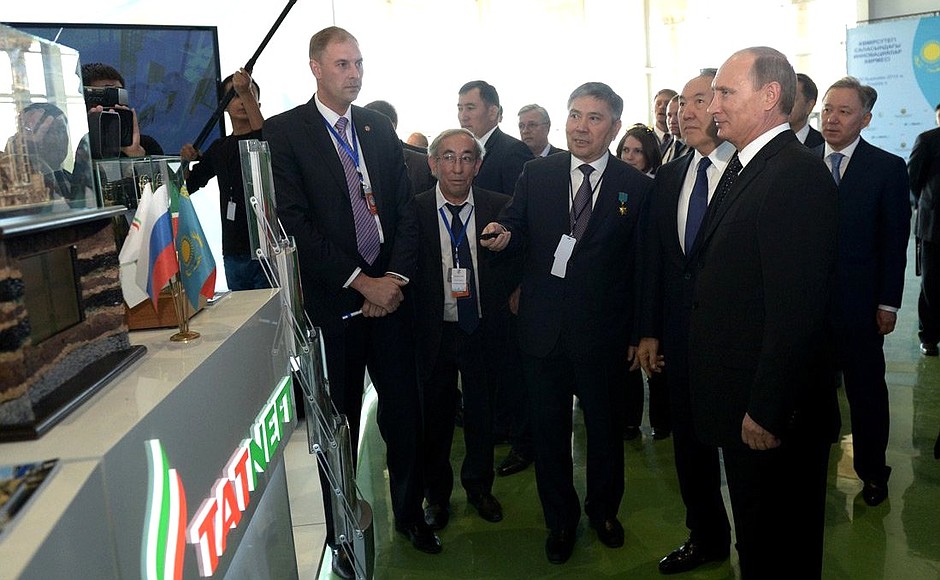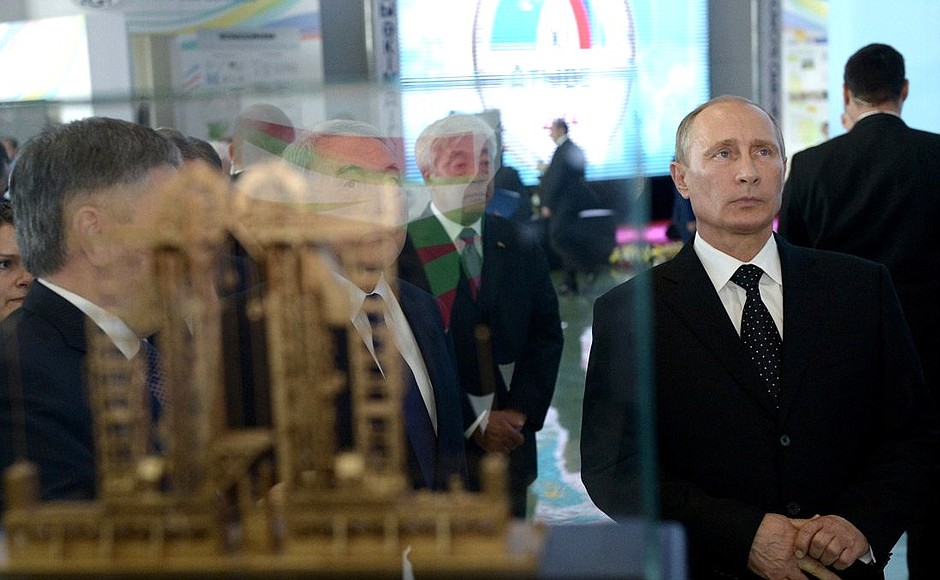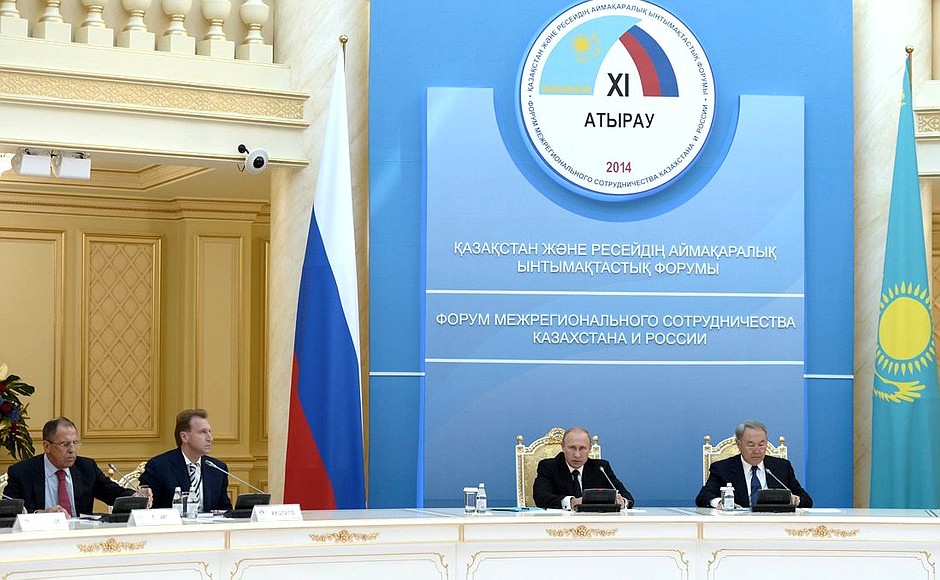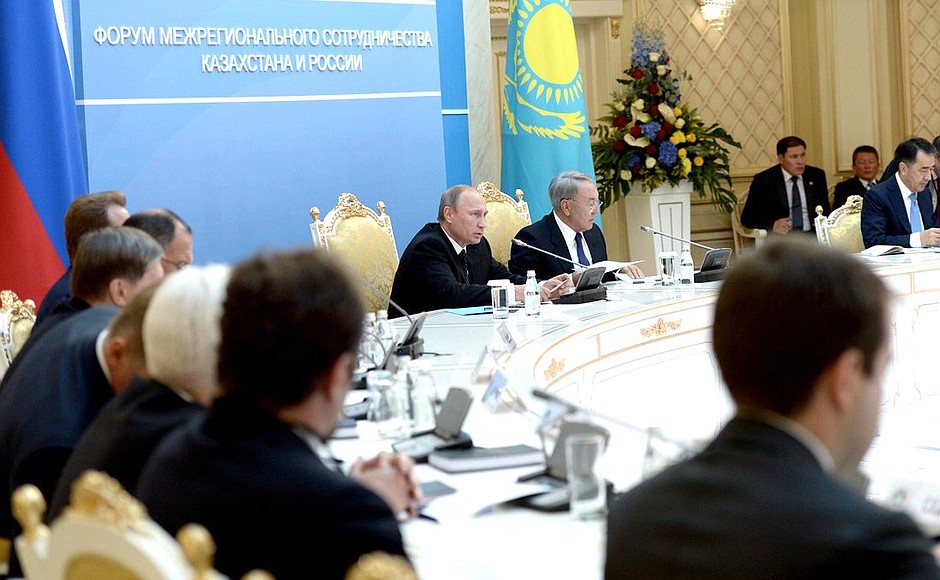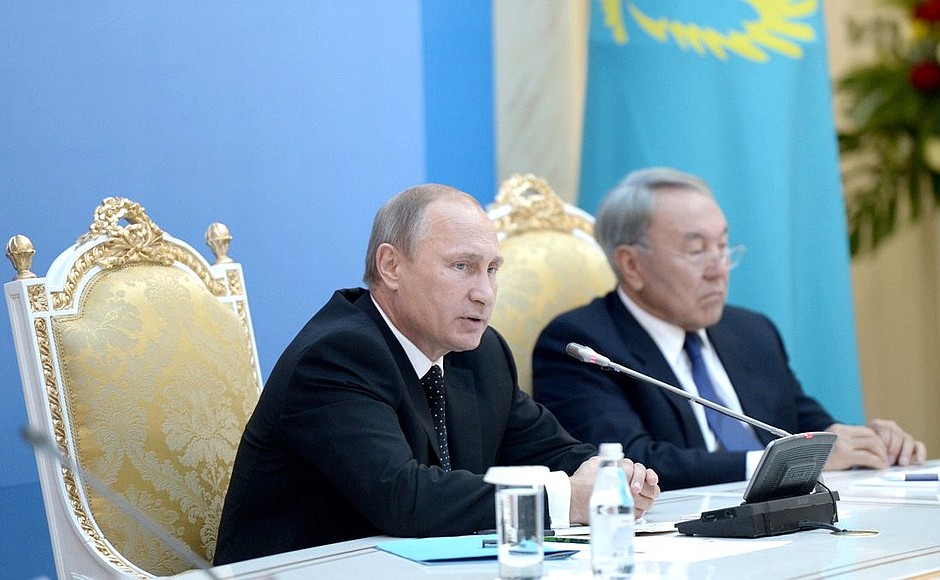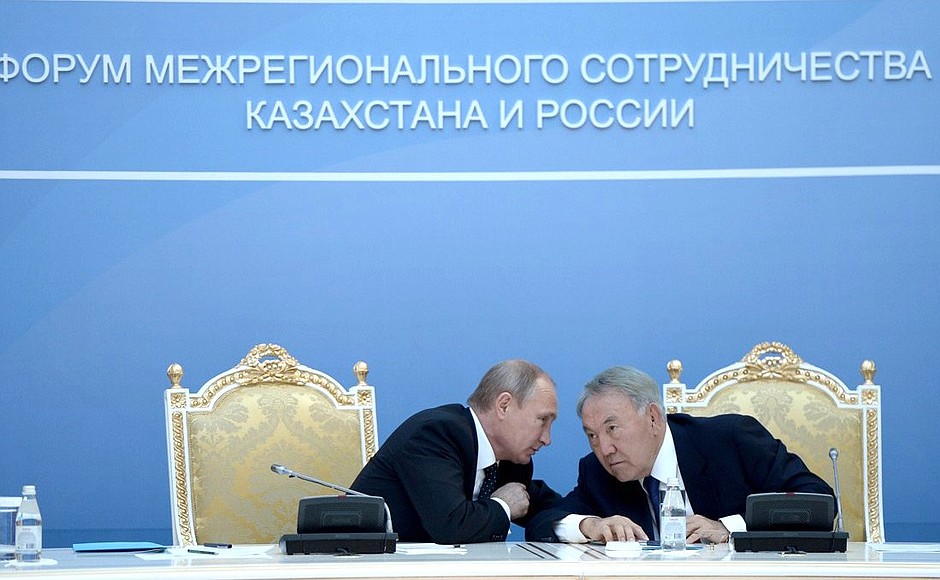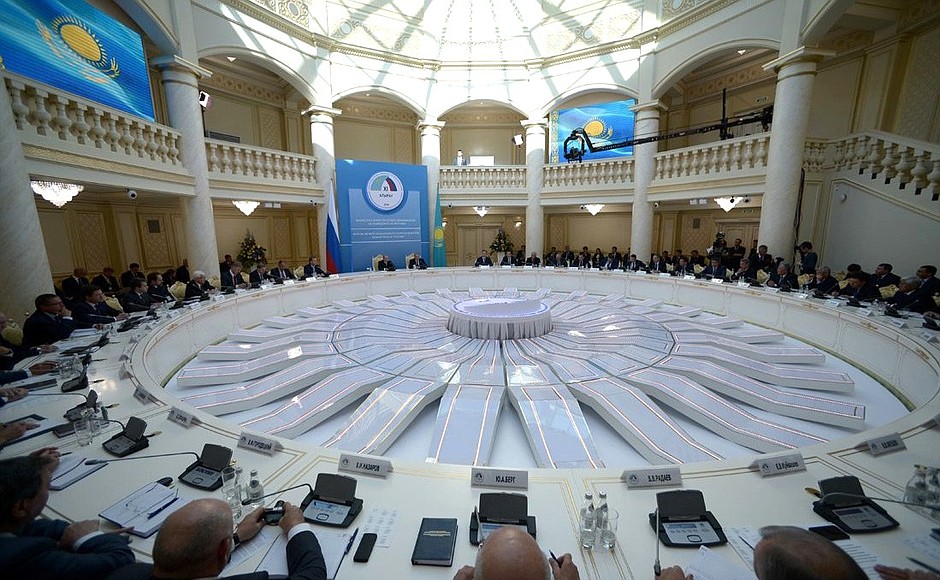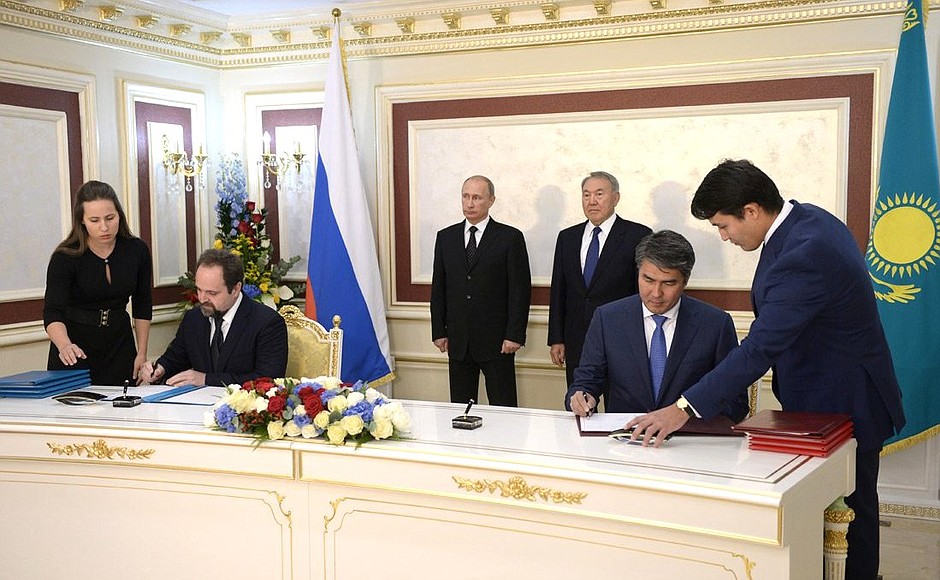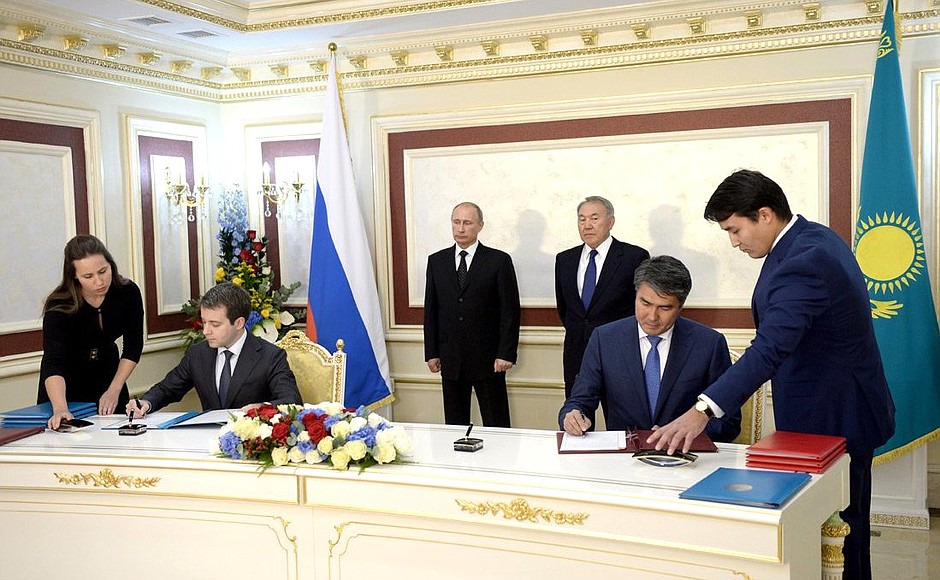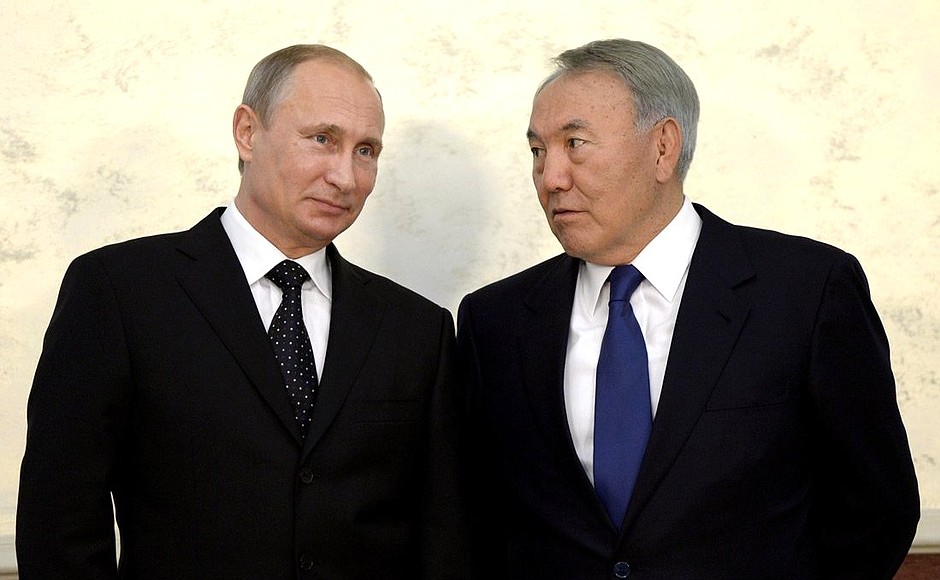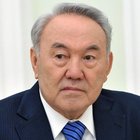See also
The theme of this year’s forum is Innovation in Hydrocarbons. The participants include heads of key ministries and agencies, heads of regions of the Russian Federation and Kazakhstan, and business leaders. Such annual meetings have been held since 2003 in the two countries in turn; the previous forum was in Yekaterinburg.
The plenary meeting resulted in signing a package of documents. In particular, the two presidents witnessed the signing of two intergovernmental agreements. A number of documents on cooperation in trade, the economy, science, technology and culture and on developing the strategic partnership have been signed on the sidelines of the Forum.
The next Interregional Cooperation Forum will take place in Ufa in 2015.
Prior to the plenary meeting, Vladimir Putin and Nursultan Nazarbayev visited an exhibition of innovative technologies in hydrocarbon production. The two Presidents also launched a joint project called Eurasia, which will make it possible to drill ultradeep wells for hydrocarbon production.
* * *
Address at the XI Russia-Kazakhstan Interregional Cooperation Forum
President of Russia Vladimir Putin: Mr Nazarbayev, colleagues and friends,
The Interregional Cooperation Forum has become an important instrument in developing the partnership between Russia and Kazakhstan. The first such meeting was held in Omsk in 2003, and in the past 11 years, economic ties between our countries have reached a qualitatively new level: bilateral trade has grown more than 6-fold to reach $26.5 billion in 2013, while Russia’s direct investment into Kazakhstan’s economy has increased 10-fold.
Clearly, such dynamics are largely a result of the investment interaction between our two economies. Especially active in Russia are Tatarstan, Sverdlovsk, Chelyabinsk and Orenburg regions. Each of these regions’ trade with Kazakhstan exceeds $1 billion. The majority of Russian regions have established partnerships with all the 14 regions of Kazakhstan, more than 11,000 joint ventures have been established, and about 300 interregional cooperation agreements have been signed.
Of special significance in expanding economic ties between our countries is our cross-border cooperation. Russia and Kazakhstan have the longest common land border in the world – 7,600 kilometres. The 12 regions of the Russian Federation and 7 regions of Kazakhstan located along this border account for over 40 percent of the bilateral trade turnover. Many of the border regions, such as Tyumen, Orenburg or Atyrau in Kazakhstan contain vast reserves of strategically important hydrocarbons, with major fuel and energy facilities operating there.
Upgrading technology in this sphere is of special importance for the development of cross-border cooperation. In this connection, I find the theme of this forum – Innovation in Hydrocarbons – especially important. Russia and Kazakhstan have a number of large high technology fuel and energy projects. For many years, Gazprom of Russia and KazMunayGas of Kazakhstan have been cooperating in the shipment of Russian gas to the southern and western regions of Kazakhstan. These two companies jointly refine 15 billion cubic metres of gas every year at the Orenburg Gas Processing Plant; they are also jointly developing the Imashevskoye trans-border field.
Active trans-border cooperation helps to effectively realise the unique transit potential of our two countries. The main volume of Kazakhstani oil exports to the western markets – 18 million tonnes in 2013 – is shipped across the Russian territory, while this year Russia has organised the export of oil through Kazakhstan to the People’s Republic of China.
The introduction of advanced refining technologies makes it possible to strengthen the production chains that have developed over the past years and that will eventually involve dozens of energy, machine building and engineering facilities in both countries. This will help our regions to create new jobs, generate demand for research, which is of special importance in the modern world, train qualified personnel and produce advanced equipment.
The launch of the Eurasian Economic Union on January 1, 2015 will create significantly more favourable conditions for joint efforts in the fuel and energy complex. A radical reduction in obstacles to the movement of capital, goods, services and labour will help significantly expand the number of joint projects and will make the economies of our countries in general and those of individual regions of the Russian Federation and Kazakhstan more attractive for investors, which in turn will speed up innovative technology exchange.
It is important for the regional authorities, the business community, industrialists and investors to make full use of the emerging opportunities. We will assist this in every way at the governmental and presidential levels.
In conclusion, I would like to thank you for the joint work, for your contribution to this work, and I wish you further success.
Thank you very much.
